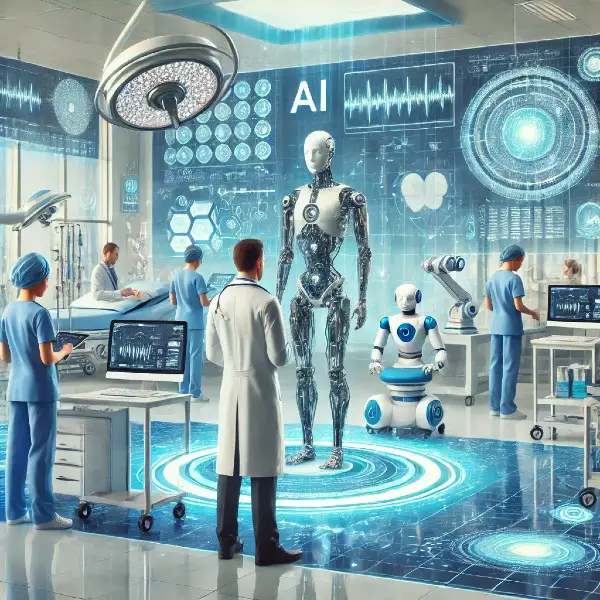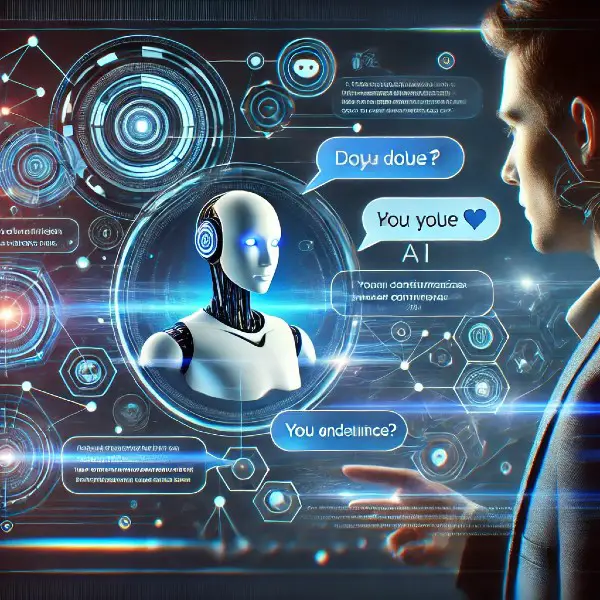AI Horizon As artificial intelligence (AI) continues to revolutionize industries, the healthcare sector stands on the precipice of profound change. The integration of AI into healthcare is not merely about automation or improved diagnostics; it represents a fundamental shift in how healthcare providers, businesses, and patients interact. This shift is redefining the future of work in healthcare, creating new opportunities, and posing significant challenges.
The Role of AI Horizon in Healthcare Transformation
AI’s potential to transform healthcare is vast. From predictive analytics that can foresee patient outcomes to AI-driven tools that assist in surgeries, the technology is enhancing the precision, efficiency, and effectiveness of healthcare delivery. Businesses within the healthcare sector are rapidly adopting AI to streamline operations, reduce costs, and improve patient care.
AI’s impact is particularly evident in the realm of data management. With the ability to process and analyze vast amounts of data, AI is helping healthcare providers make more informed decisions. This data-driven approach is not only improving patient outcomes but also enabling healthcare businesses to operate more efficiently.
Challenges in Adopting AI in Healthcare
Despite its potential, the adoption of AI in healthcare is not without challenges. The integration of AI technologies requires significant investment, both in terms of financial resources and time. Healthcare providers must train staff to work alongside AI tools, which can be a daunting task given the rapid pace of technological advancement.
Moreover, the ethical implications of AI in healthcare cannot be overlooked. Issues related to patient privacy, data security, and the potential for algorithmic bias are significant concerns that must be addressed as AI becomes more prevalent in healthcare settings.
AI and the Future Workforce
As AI continues to evolve, its impact on the healthcare workforce is becoming increasingly apparent. While AI has the potential to automate many routine tasks, it is also creating new roles that require a different set of skills. Healthcare professionals will need to adapt to this changing landscape by developing expertise in areas such as AI tool management, data analysis, and cybersecurity.
The future of work in healthcare will likely be characterized by a hybrid model, where AI and human workers collaborate to deliver optimal patient care. This collaboration will require ongoing education and training, as well as a willingness to embrace new technologies.
Business Implications of AI in Healthcare
For businesses operating within the healthcare sector, AI offers both opportunities and challenges. Companies that successfully integrate AI into their operations stand to gain a competitive advantage through improved efficiency and patient outcomes. However, those that fail to adapt may find themselves struggling to keep pace with the rapidly changing landscape.
To thrive in this new environment, healthcare businesses must be proactive in adopting AI technologies. This means not only investing in the necessary infrastructure but also fostering a culture of innovation and continuous learning.
Conclusion: Navigating the AI Horizon in Healthcare
The integration of AI into healthcare is reshaping the future of work in the industry. While the challenges are significant, the opportunities are equally vast. By embracing AI, healthcare providers and businesses can position themselves at the forefront of this transformation, driving innovation and improving patient care.
Reference
- AI Horizon in Healthcare: The integration of AI in healthcare has reached a pivotal point, where its potential to revolutionize patient care is both exciting and daunting. According to Harvard Business Review, the AI horizon in healthcare is defined by innovations that can enhance diagnostic accuracy, streamline clinical workflows, and improve patient outcomes. However, these advancements also come with challenges related to data privacy, ethical considerations, and the need for rigorous validation of AI tools. As AI continues to evolve, healthcare systems must balance the benefits with the inherent risks.
- AI Horizon and Ethical Implications: As AI technology advances, it’s critical to address the ethical implications that arise at the AI horizon. A report by The Brookings Institution highlights the importance of transparency, accountability, and fairness in AI systems, particularly in public sectors such as healthcare. The report discusses how AI’s potential to improve efficiency and decision-making must be tempered with strong ethical guidelines to prevent biases and ensure equitable access to AI-driven innovations.
- AI Horizon and Future Opportunities: The AI horizon is not only about the current state of technology but also about the future possibilities it presents across various industries. McKinsey & Company explores how AI is poised to unlock new opportunities, from enhancing customer experiences to driving operational efficiencies. As industries navigate the AI horizon, they must remain agile and adaptable, embracing the technology while addressing the challenges it poses, such as workforce displacement and the need for reskilling.

Unveiling the Secrets of Black Box AI: An Easy Guide for Everyone








